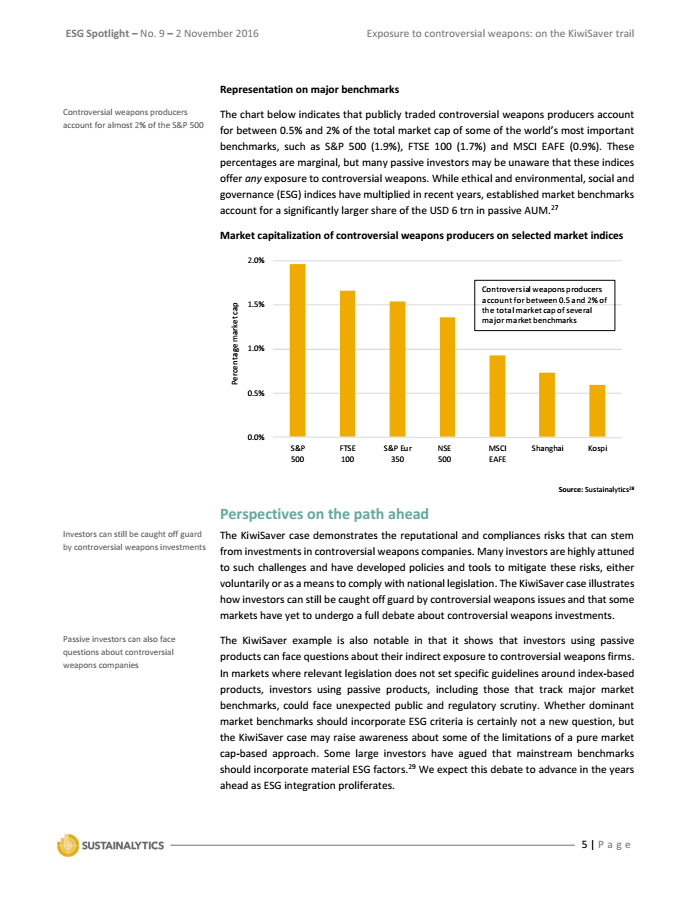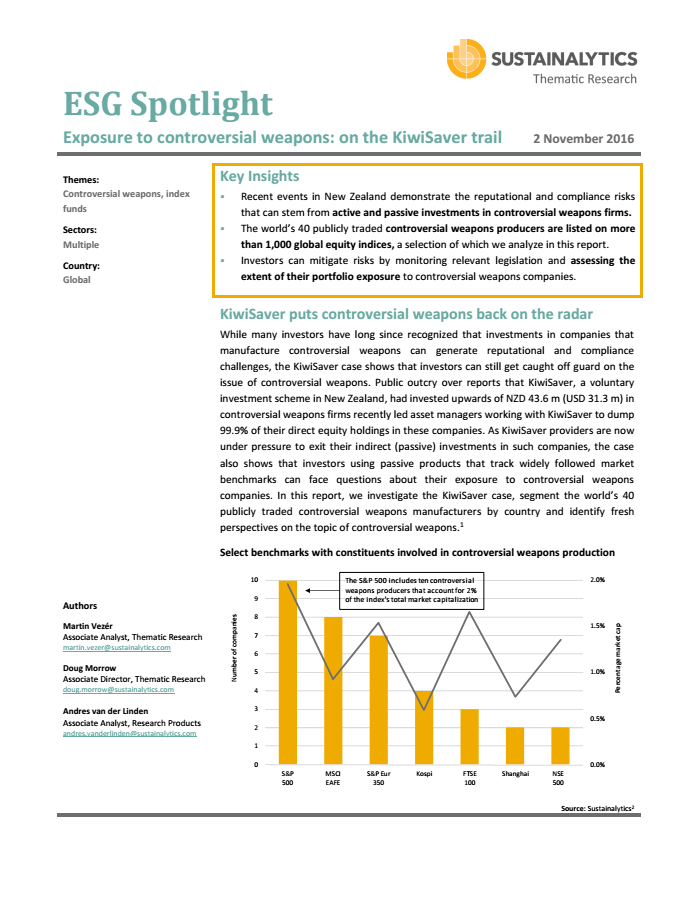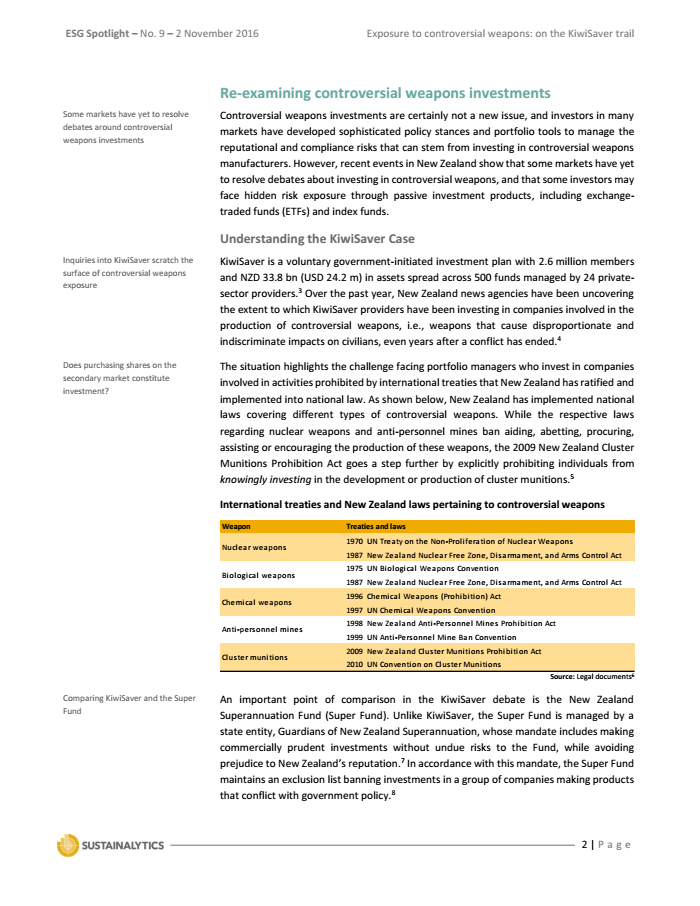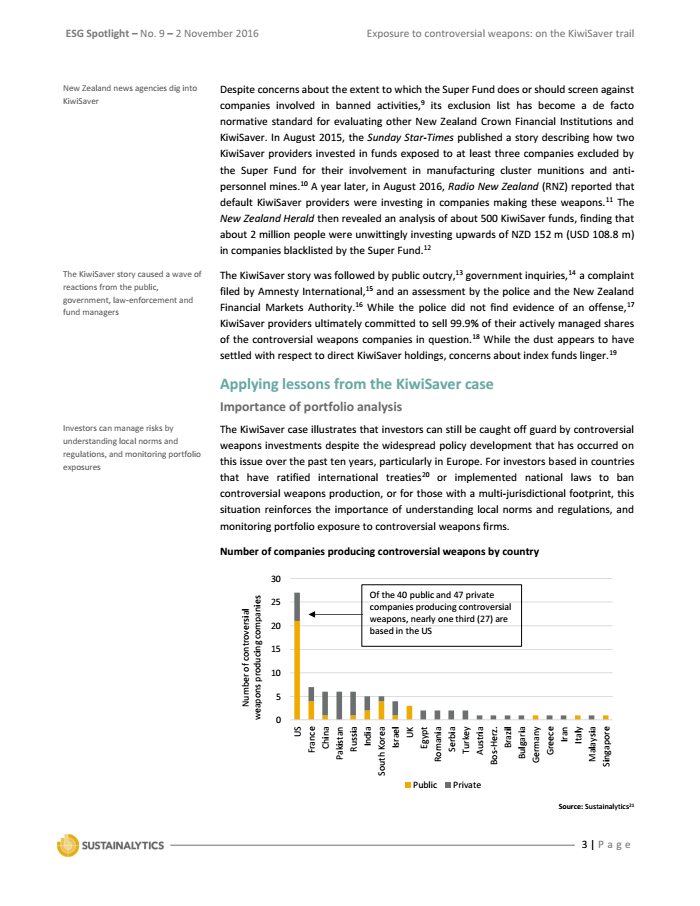The recent furore over KiwiSaver that saw banks and large financial institutions dump $109 million of controversial investments is drawing the attention of the international investment community.
Canada-based Sustainanalytics, a research firm employing 300 people in offices in 15 global financial centres, recently wrote up the episode in a research note for clients.
The note concluded: “The KiwiSaver case demonstrates the reputational and compliance risks that can stem from investments in controversial weapons companies
The Herald and RNZ revealed in August that KiwiSaver fund managers had invested $153m of client funds in stocks blacklisted by the government-run New Zealand Superannuation Fund. These investments included $43.4m of potentially illegal investments in companies making weapons banned by New Zealand legislation.
Within two months $109m of identified controversial stocks had been dumped by KiwiSaver providers – including 99.9 per cent of investments in the banned weapon-makers – with attention turning how to manage exposure to such firms held indirectly through index investments.
“The KiwiSaver story was followed by public outcry, government inquiries, a complaint filed by Amnesty International, and an assessment by the police and the New Zealand Financial Markets Authority,” the note said.
“The KiwiSaver case illustrates that investors can still be caught off guard by controversial weapons investments despite the widespread policy development that has occurred on this over the past ten years, particularly in Europe.”
Citing the growing spread of international treaties and conventions banning various weapons, the report said international fund managers needed to be aware of the concerns of offshore clients.
“This situation reinforced the importance of understanding local norms and regulations, and monitoring portfolio exposure to controversial weapons firms,” the note said, citing New Zealand’s laws banning landmines and cluster bombs and our unique anti-nuclear legislation.
The note warned of increasing debate over the murkier area of index investments, stating the KiwiSaver case showed that having indirect holdings was a poor defence to concerns of clients or possible legal consequences.
“Investors using passive products, including those that track major market benchmarks, could face unexpected public and regulator scrutiny,” the note said.
The Sustainanalytics note predates the announcement of Vanguard Funds, the worlds’ largest passive fund manager, to offer an New Zealand-focused ethical fund effectively screening using NZSF criteria and excluding controversial stocks.
The move is likely to see hundreds of millions of dollars of KiwiSaver investments shift. Providers currently investing billions in international index funds – including $734m alone into the unscreened Vanguard International Stock Index Fund, one of many such global equity vehicles.




